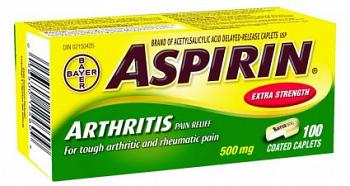Your Medicines May be Based Upon a Marketing Ploy
Signs that your medicine may not be as beneficial to you as marketed
When you look at the medicines, especially those which seem to flood the online market, you will notice that there are quite a few selections to choose from. And while we would hope that our pharmaceutical products are made with our best interests in mind, the truth of the matter is that for a great many medications on the market, the origins and the quality of the medications are shady at best. Here are a few ways in which you can spot a marketing ploy.
The medication is not domestic
Regardless of whether you are in the United States, the UK, or Australia, the imports and exports on medications has restrictions. This makes it very difficult for startup companies to branch out to a global market. The way in which companies can do so is if the medicine is declared as an organic food product or health supplement and not as a pharmaceutical. What does that mean for you? This means that even though the site may say that you are buying something that doctors have approved for blood pressure, weight loss, you name it, the product does not contain enough active ingredients to be considered medication. Of course, the regulations on a particular medication vary from the country to country and there are different organizations which regulate what can and cannot be shipped. However, I find that the FDA stamp of approval is always a good indicator of whether or not I should consume something.
Here is the cloak and dagger of the non-domesticated medicine. Generally, the packaging is presented in that countries language. Unless you are familiar with that dialect, you have really no indicator of the disclaimers, ingredients, etc. which you are ordering. It could very well be that the product claims one thing on the site, but to avoid any legal issues the actual product claims quite another.
If the product has too many reviews be cautious
Freelance writers will tell you (if they are honest) that a great deal of their income is derived from writing product and customer reviews for clients. Of course, the clients require you to sign an NDA so that the tracks are covered, but there you have it. Those 5 stars really do not mean a thing if there are 500 or so reviews because for the most part, these products typically have had people paid to write good things to boost the product to the top of the SERPs. Don’t think this is legal? Technically it is not. That is why for their services the company will send the freelancer a bottle of the product for free. See the loophole here? If the freelancer has 300 user names provided by the company and has the product supplied to him or her, then technically they are providing actual feedback, but in reality they are getting paid to boost up the product’s name.
Packaging that is too good to be true
3D models have been used in packaging and marketing for years. Photorealism has a huge market for the CG artist. Where this is a benefit to being able to stage your product through 3D, it is a bit of a misleading practice, especially when considering that the product being presented is not a physical product. Simply search 3d pill bottle and you will find a great deal of results. Should the 3D artist be to blame? No. Companies should indicate that the image you are seeing is a visualization of the product (either in a footnote or under the image). The CG artist is much like the freelance writer in the fact that they provided a service for a cost.
A sure sign that a product is too good to be true is in the details. Look for those slight imperfections. This could be the dinged corner of the packaging, a scuff mark on an edge, a bit of loose glue, or something similar. My personal indicator is to look for the perfect seam. If all the edges line up perfectly and symmetrically, then the odds are that the image is a rendering. Don’t believe me? Get any packaging you may have, pills, DVD, a board game, it does not matter. Look at the edges. Out of those edges at least one will be just slightly off.
If the packaging is too go to be true it probably is.
Do a company search
The number one way in which to find out if your medicines are a marketing ploy is to research the company providing the medicine. If you find that the manufacturing company is in one country, the home office is in another, and there are three contact numbers all in another country, it is a ploy. To operate any company in multiple countries such as that would require a substantial amount of capital, licensing, and various accountability reviews of the product.
Keep your medicines local and known
The bottom line is to keep your pharmaceuticals home based. Get to know your pharmacist and avoid falling into the cheap is better scheme. Your wallet and your health will thank you for it in the long run.
Comments
There are 0 comments on this post













